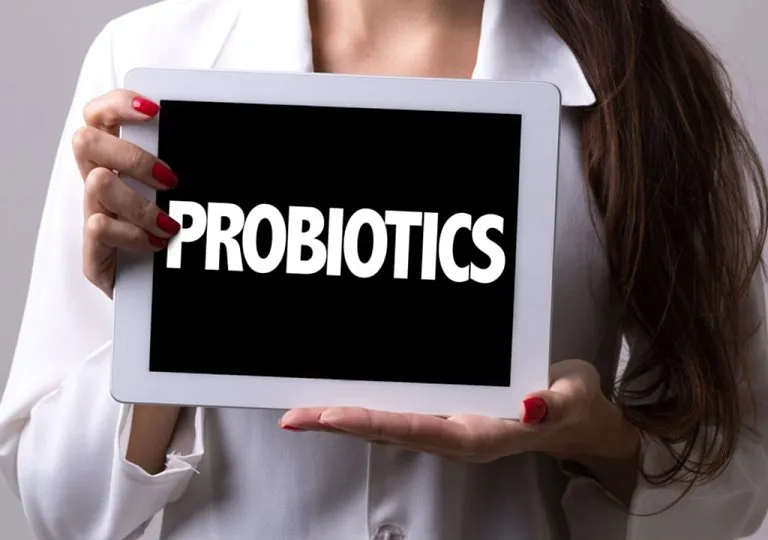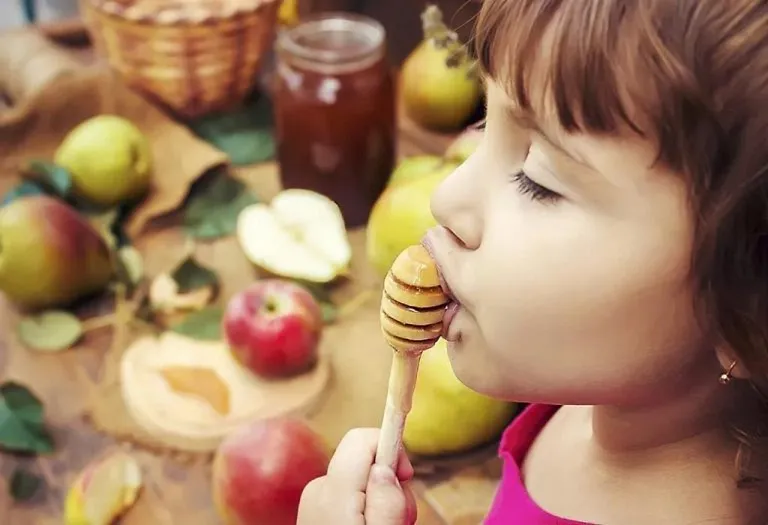Eggs for Kids – Types, Benefits and Precautions

Eggs are often hailed as a powerhouse of nutrition, and for good reason, especially when it comes to growing children. Packed with essential vitamins, minerals, high-quality protein, and healthy fats, eggs play a vital role in supporting a child’s physical and mental development. You can make poached, boiled, or scrambled eggs without much effort. Eggs are a healthy breakfast, and naturally, you’d want to include them in your child’s diet. But you may also wonder if there’s a limit on how many eggs your child should eat and question the benefits and side effects of eggs for kids, if any. Here’s everything you need to know about adding eggs to your child’s diet. Read on!
Nutritional Value of Eggs
The table below represents the nutritional value in 100 grams of eggs (1).
| Nutrients | Quantity per 100 g |
| Protein | 12.56 g |
| Carbohydrates | 0.72 g |
| Cholesterol | 372 mg |
| Water | 76.15 g |
| Sugar | 0.37 g |
| Iron | 1.75 mg |
| Sodium | 142 mg |
| Folate | 0.047 mg |
| Niacin | 0.075 mg |
| Zinc | 1.29 mg |
| Calcium | 56 mg |
| Magnesium | 12 mg |
| Riboflavin | 0.457 mg |
| Vitamin A | 0.16 mg |
| Vitamin D | 0.002 mg |
| Vitamin K | 0.003 mg |
| Vitamin E | 1.05 mg |
| Vitamin B-6 | 0.170 mg |
| Vitamin B-12 | 0.009 mg |
Various Types of Eggs
Eggs are available in various varieties, some of which include:
1. Cage-Free Eggs: Cage-free eggs are those eggs that originate from hens that are let free around a specific allotted area where they can roam and lay eggs in self-built nests.
2. Free-Range Eggs: Free-range eggs are those eggs that originate from hens that are let free in the open for a specific time period of the day.
3. Organic Eggs: Organic eggs originate from hens that are fed on a vegetarian or organic diet. These hens are generally let in the open rather than being stuck in the cages.
4. Vegetarian Eggs: Vegetarian eggs originate from hens that are strictly fed vegetarian diet, free from any kind of non-vegetarian food. These are different from organic eggs laying hens as in this case hens are not let out in the open as they may consume any worms or insects.
5. Pasteurised Eggs: Pasteurised eggs are those eggs that are treated before they are sold in the market. These eggs undergo a pasteurisation process where the eggs are preheated so that the bacteria get eliminated before anyone consumes them.

Benefits of Eggs for Children
The benefits of serving eggs to children are many, some of which are highlighted below:
1. Excellent Source of Protein
Protein helps in cell creation as well as recreation and also provides kids with the required energy for their everyday activities (2).
2. Good Source of Iron
Iron is required for maintenance of healthy blood cells, boosting a child’s growth and providing oxygen to every part of the body. Eggs can help meet a child’s requirement of iron (3).
3. Supports Brain Development
Eggs contain choline, which helps kids in their brain development. Choline helps in boosting learning process and memory, which is an essential part of a child’s growth (4).
4. Boosts Immune System
Eggs contain selenium and zinc, which help in boosting the immune system of a child. Selenium creates free radicals which help in killing harmful bacteria and zinc helps in maintaining the good cells that fight the microorganisms (5).
5. Great Source of Vitamins
Eggs contain all types of vitamins such as Vitamin A, D, K, E and also Vitamin B-6 and B-12. Eggs also contain folate, riboflavin, and niacin. All these vitamins help in one way or the other in a child’s growth. Like, Vitamin D is good for bone strength; Vitamin A is known to be good for eyes, vitamin B-6 for boosting brain development and B12 for plummeting anaemia (6).
6. Rich Source of Fats
Eggs contain the right balance of both the saturated and unsaturated fats, which in turn makes it a perfect food item for kids. Eggs can be provided to kids without any risk of obesity but try serving boiled eggs rather than the fried ones.
7. Easy to Digest
As eggs contain the right balance of fats, it helps in better digestion in kids. Better digestion is important in kids as their system is still in the development phase.
8. Promote Eye Health
Eggs contain lutein and zeaxanthin which help improve eyesight and also helps in safeguarding eyes against the harmful UV rays (7).
9. Supports Healthy Skin and Hair
Eggs contain a range of nutrients including biotin, zinc, and vitamin E, all of which contribute to healthy skin and strong, shiny hair. Biotin, in particular, plays a major role in maintaining skin elasticity and strengthening hair follicles.
10. Strengthens Bones and Teeth
Eggs are one of the few natural sources of vitamin D, which helps the body absorb calcium, a mineral essential for strong bones and teeth. This is particularly important for growing children to support healthy bone density and prevent issues like rickets (8).
11. Aids in Physical Growth
The balanced mix of proteins, fats, and essential nutrients in eggs contributes to the proper growth of bones, muscles, and tissues. Children need consistent nutrient intake to reach their full height and physical potential, and eggs provide a reliable source of those nutrients (9).
12. Supports Heart Health
Eggs contain healthy fats that help raise good cholesterol (HDL), which protects the heart by removing excess cholesterol from the bloodstream. They also provide omega-3 fatty acids that reduce inflammation and support healthy blood vessels. Eating eggs as part of a balanced diet helps children maintain healthy cholesterol levels and promotes overall heart health (10).
How Many Eggs Can a Child Eat in a Day?
You can include 1-2 eggs daily in your child’s diet but not more. Eating too many eggs might lead to indigestion in children.
Can a Child Eat Raw Eggs?
A child should never be served raw eggs or even partially cooked eggs as it may carry a lot of diseases along with it due to high bacteria content in them (11).
Can Eating Eggs Cause Salmonella Poison in Children?
Eggs should never be eaten uncooked as they carry a risk of salmonella poisoning. Although people overcome such poisoning naturally, kids don’t, as kids have a weak immune system.
Precautions to Take While Serving Eggs to Kids
Here are a few pointers you should remember when serving eggs to your children.
- Serve only fresh eggs.
- Fully cook or boil the egg before serving to a child.
- Consult a doctor before serving eggs to your kids, in case you have a history of allergies.
FAQs
1. Can eggs cause allergies in kids?
Egg allergy is one of the common food allergies in children, but many outgrow it by school age. Consult a doctor if you suspect an allergy.
2. Can eggs be part of a weight management plan for overweight kids?
Yes, eggs keep kids full for longer, reducing the temptation to snack on unhealthy foods and aiding healthy weight control.
Without a doubt, eggs are super healthy and can benefit a child, but only if consumed in moderation. So remember this while including eggs in your child’s breakfast, lunch, or dinner.
References/Resources:
1. U.S. DEPARTMENT OF AGRICULTURE – Egg, whole, raw, frozen, pasteurized
5. PubMed Central – Dairy-Derived and Egg White Proteins in Enhancing Immune System Against COVID-19
7. Sight Research UK – Eggs: A Protein-packed Choice for Stellar Eye Health
8. NHS – Food for healthy bones
9. PubMed Central – The Health Benefits of Egg Protein
10. Keck Medicine of USC – 9 Health Benefits of Eating Eggs for Breakfast
11. NHS – Foods to avoid giving babies and young children
Also Read:
Protein for Kids
Food Pyramid for Kids
Importance of Nutrition for Kids
Effects of Junk Food on Children
Was This Article Helpful?
Parenting is a huge responsibility, for you as a caregiver, but also for us as a parenting content platform. We understand that and take our responsibility of creating credible content seriously. FirstCry Parenting articles are written and published only after extensive research using factually sound references to deliver quality content that is accurate, validated by experts, and completely reliable. To understand how we go about creating content that is credible, read our editorial policy here.














.svg)
















